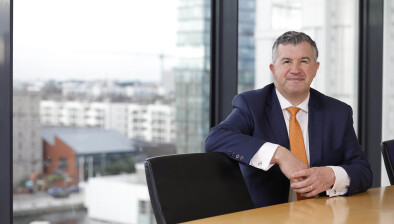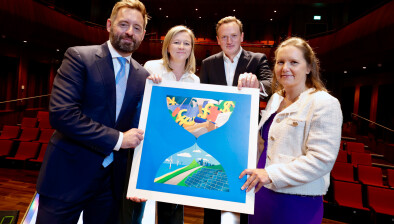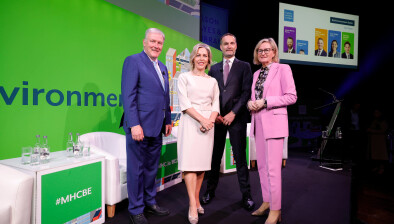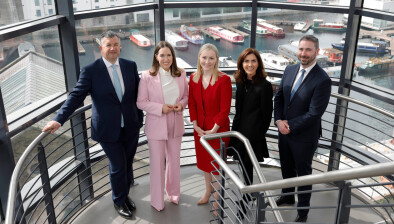MHC: Energy sector unanimous that Ireland won’t meet offshore wind targets
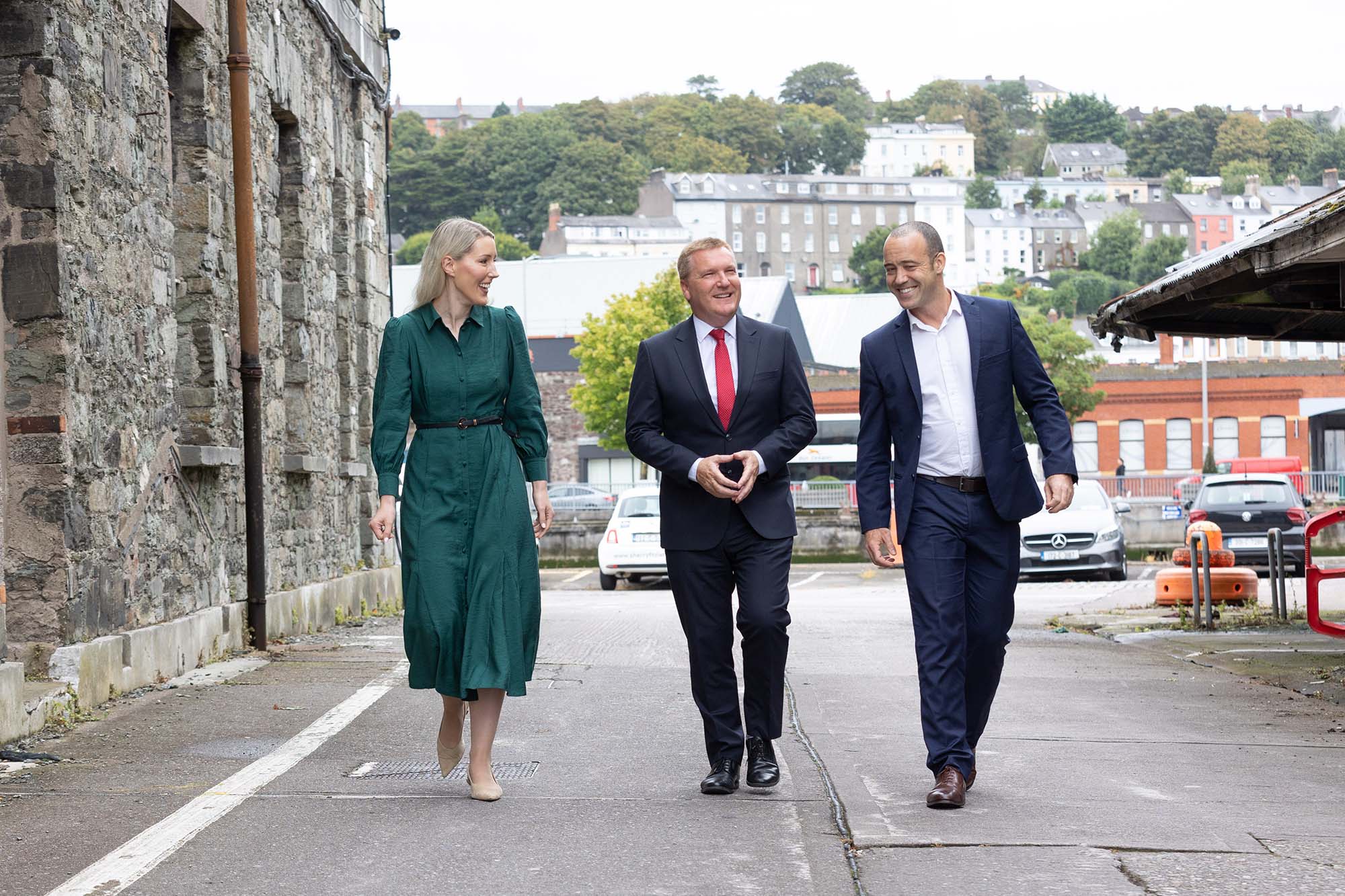
Pictured (left–right): Muireann Hernon, Michael McGrath and Simon Mundy
Energy professionals do not believe that Ireland will meet it target to create 5GW of new offshore wind by 2030, according to a new survey by Mason Hayes & Curran.
The business law firm polled nearly 200 industry professionals at its annual energy conference, this year taking place in Cork, and found that not a single respondent believed the target would be met.
Nearly two-thirds (59 per cent) of respondents said less than 2GW of offshore wind capacity will be installed by 2030, while 41 per cent said that more than 2GW but less than the 5GW target would be achieved.
The majority (72 per cent) said that increased interconnection with the UK and mainland Europe was critical to delivering Irish offshore wind ambitions.
There was more positivity around the proposed reforms to Ireland’s planning system. Nearly nine in 10 (86 per cent) energy executives expect the proposed reforms to Irish planning law to have a positive effect on the sector.
The survey also found that planning uncertainty (48 per cent) is Ireland’s greatest energy challenge when addressing the energy infrastructure deficit, followed by grid availability (35 per cent).
Jay Sattin, planning and environment partner at Mason Hayes & Curran, said: “These results are not surprising as there is a lot of frustration with the current delays in receiving a planning permission that is safe from legal challenge.
“If enacted in their current form, the proposed reforms should be broadly positive such as mandatory timelines for planning determinations.
“However those changes need to be supported by other measures including more resources for planning authorities, which should mean the timelines are achieved and result in fewer errors in the planning decisions.”
More than three-quarters of respondents (81 per cent) called for greater government focus on the decarbonisation of transport and heat, not just electricity, in order for Ireland to attract well-rounded FDI.
Meanwhile, just over two-thirds of respondents (66 per cent) said the incentivisation of green hydrogen production would help to deliver the decarbonisation of Ireland’s power system.
Event chair Eoin Cassidy, partner and head of the energy sector team at Mason Hayes & Curran, said: “Ireland’s energy transition is one of the defining issues of our time and our energy lawyers are at the vanguard, helping clients to navigate the complex challenges that face the sector.
“Today’s event was an opportunity for industry leaders and stakeholders to explore how we can work together to shape the future landscape of energy investment in Ireland and improve our global competitiveness.”
Finance minister Michael McGrath, who delivered a keynote address at the conference, said: “Achieving the Paris Agreement goal of limiting the increase in global temperature to 1.5°C above pre-industrial levels will entail nothing less than a full transformation of our economy and our society.
“It is important to recognise that the scale of investment needed to transform our energy systems is beyond what can be facilitated through public sector funding alone.
“It is therefore imperative that we encourage the development of sustainable businesses. We must ensure that financial markets increasingly embed sustainability, and reorient private capital flows towards sustainable investments, and today’s conference provides a timely opportunity to discuss how this collaboration can take place.”
Simon Mundy, journalist and author of Race for Tomorrow: Survival, Innovation and Profit on the Front Lines of the Climate Crisis, also spoke at the event and said: “I’m glad to have had this opportunity to discuss the global race for leadership in the clean energy age — the most important business and economic story of our generation.”







